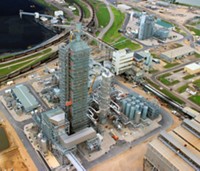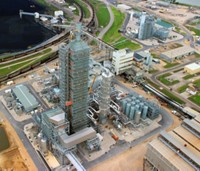Advertisement
Grab your lab coat. Let's get started
Welcome!
Welcome!
Create an account below to get 6 C&EN articles per month, receive newsletters and more - all free.
It seems this is your first time logging in online. Please enter the following information to continue.
As an ACS member you automatically get access to this site. All we need is few more details to create your reading experience.
Not you? Sign in with a different account.
Not you? Sign in with a different account.
ERROR 1
ERROR 1
ERROR 2
ERROR 2
ERROR 2
ERROR 2
ERROR 2
Password and Confirm password must match.
If you have an ACS member number, please enter it here so we can link this account to your membership. (optional)
ERROR 2
ACS values your privacy. By submitting your information, you are gaining access to C&EN and subscribing to our weekly newsletter. We use the information you provide to make your reading experience better, and we will never sell your data to third party members.
Environment
CO2 Emissions Unchanged By Natural Gas Use
by Andrea Widener
September 29, 2014
| A version of this story appeared in
Volume 92, Issue 39
Increased natural gas use will do little to reduce the amount of CO2 in the atmosphere, according to a new study. Instead, use of the fuel could actually increase energy consumption by delaying adoption of energy-efficient technologies and put off a switch to cleaner energy sources, such as wind and solar. Researchers from the University of California, Irvine; Stanford University; and the nonprofit group Near Zero modeled different scenarios of natural gas use and climate change regulations to tease out their effects on greenhouse gas emissions. Increased natural gas use would result in a decrease in coal use between 2013 and 2055, according to the paper, published in Environmental Research Letters (2014, DOI: 10.1088/1748-9326/9/9/094008). But it would also decrease use of energy-efficient technologies, which could result in an overall increase in electricity use and could boost greenhouse gas emissions. “Natural gas has been presented as a bridge to a low-carbon future, but what we see is that it’s actually a major detour,” says author Christine Shearer of UC Irvine.




Join the conversation
Contact the reporter
Submit a Letter to the Editor for publication
Engage with us on Twitter